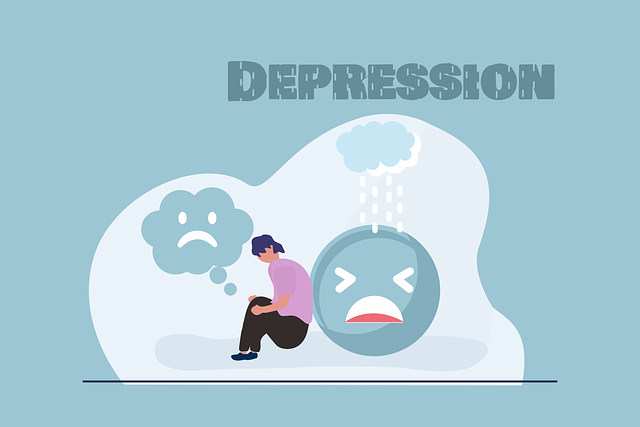In Washington County, Oregon, civil commitment proceedings under state mental health laws offer crucial support for individuals with severe mental illnesses. This process involves evaluations, court petitions, and hearings, balancing individual rights with public safety. Advocacy groups and specialized legal representation ensure fair treatment, protecting the rights of those involved. Understanding the Oregon commitment process, including evaluation steps, petitioning, and court hearings, is vital for successful navigation, especially with competent legal counsel. Washington County residents have access to resources and professionals who provide essential support throughout mental health cases.
“In Washington County, Oregon, understanding civil commitment proceedings and their impact on mental health is paramount. This article delves into the intricate aspects of the local commitment process, highlighting the interplay between mental health law and community support. We explore who can seek legal aid during these sensitive proceedings, ensuring awareness of rights and protections. Additionally, we guide readers through finding legal representation and advocating for individuals involved in Oregon’s commitment process, emphasizing the crucial role of Washington County advocacy in navigating these complex matters.”
- Understanding Civil Commitment Proceedings in Oregon
- The Role of Mental Health Law in Washington County
- Who Can Seek Legal Support for Commitment?
- Rights and Protections During the Commitment Process
- Finding and Engaging Legal Representation in Oregon
- Navigating the Commitment Process with Advocacy
Understanding Civil Commitment Proceedings in Oregon

In Oregon, including Washington County, civil commitment proceedings are a crucial aspect of the state’s mental health law framework. These legal processes allow for the voluntary or involuntary placement of individuals in treatment facilities when they pose a risk to themselves or others due to severe mental illness. The commitment process involves a series of steps, beginning with an evaluation by a qualified healthcare professional who determines if the individual meets the criteria for civil commitment. If so, a petition is filed in court, initiating legal proceedings that balance the rights of the individual with public safety concerns.
Washington County offers advocacy and legal representation options to those involved in civil commitment cases. Understanding the Oregon commitment process is essential for individuals seeking to protect their rights in mental health cases. This includes knowing the steps taken during evaluation, petitioning, and court hearings, as well as the specific laws and regulations that govern these proceedings. Access to competent legal representation can significantly impact the outcome of such cases, ensuring individuals are fully informed about their rights and options throughout the civil commitment process.
The Role of Mental Health Law in Washington County

In Washington County, mental health law plays a pivotal role in guiding and structuring civil commitment proceedings. This legal framework ensures that individuals facing potential or ongoing mental health crises receive appropriate evaluation, treatment, and support within a framework that respects their rights. The Oregon commitment process is designed to balance the needs of both the individual and the community, focusing on deinstitutionalization and community-based care while maintaining safety standards.
Advocacy groups and legal representation are crucial components of this system. They help navigate the complex civil commitment proceedings, ensuring that individuals’ rights in mental health cases are protected. Washington County has dedicated resources and professionals who specialize in advocating for those facing mental health challenges, providing essential support throughout the process. This includes assisting with understanding one’s legal options, communicating with medical professionals, and representing individuals in court, thereby fostering a more equitable and accessible Oregon commitment process.
Who Can Seek Legal Support for Commitment?

In Washington County, individuals facing civil commitment proceedings have the right to seek legal support and advocacy under Oregon’s mental health laws. This is crucial for anyone navigating the complex Oregon commitment process, ensuring their rights are protected throughout the entire procedure. Those who can avail of this service include persons alleged to be mentally ill or intellectually disabled, as well as those deemed a danger to themselves or others.
The right to legal representation is essential in mental health cases, especially during civil commitment proceedings. Washington County residents should remember that they have options when it comes to advocacy; specialized legal services can provide guidance, ensure procedural fairness, and protect the rights of individuals involved in these sensitive matters.
Rights and Protections During the Commitment Process

During civil commitment proceedings in Washington County, individuals facing mental health challenges are entitled to specific rights and protections under Oregon’s mental health law. This process, known as the Oregon commitment process, ensures that the rights of those with severe mental illnesses are respected and upheld. Advocates for mental health law play a crucial role in ensuring these rights, providing legal representation and support to navigate the complex Washington County advocacy landscape.
The right to legal representation is paramount throughout civil commitment proceedings. This includes the opportunity to contest the petition for commitment and to participate in all court hearings. Individuals also have the right to be informed of their legal options, understand the nature of the proceedings, and ensure their voices are heard. These protections help to safeguard against arbitrary or unfair commitments, emphasizing the importance of due process in mental health cases.
Finding and Engaging Legal Representation in Oregon

In Washington County, navigating the complex landscape of civil commitment proceedings requires knowledgeable and compassionate legal representation. Individuals facing potential or ongoing mental health commitments should seek out specialists in Oregon’s mental health law. These attorneys are equipped to guide clients through the intricate commitment process, ensuring their rights are protected at every step. They can provide crucial advocacy, helping individuals understand their options, challenge inappropriate commitments, and access appropriate support services within the community.
The Oregon commitment process demands meticulous attention to detail and a deep understanding of mental health law. Legal representatives play a pivotal role in defending clients’ autonomy while advocating for their well-being. By engaging an attorney specializing in civil commitment proceedings, individuals can navigate this challenging time with confidence, knowing they have a strong ally fighting for their rights and interests.
Navigating the Commitment Process with Advocacy

Navigating the complex landscape of civil commitment proceedings can be a daunting task for individuals facing mental health challenges and their families in Washington County. This process, governed by Oregon’s mental health laws, requires careful advocacy to ensure the rights of those involved are protected. The first step is understanding the Oregon commitment process, which involves a thorough evaluation of an individual’s mental state and functionality. Legal representation from a Washington County advocacy group specializing in mental health law can be instrumental here, providing guidance on what constitutes a valid commitment and helping to navigate the often confusing legal jargon.
Effective advocacy during civil commitment proceedings ensures that individuals receive fair treatment while balancing their rights with public safety concerns. A knowledgeable advocate can help prepare for court appearances, gather necessary evidence, and communicate the unique needs of the client. This support is crucial, especially given the sensitive nature of mental health cases, where advocates can act as a bridge between legal requirements and compassionate care.
